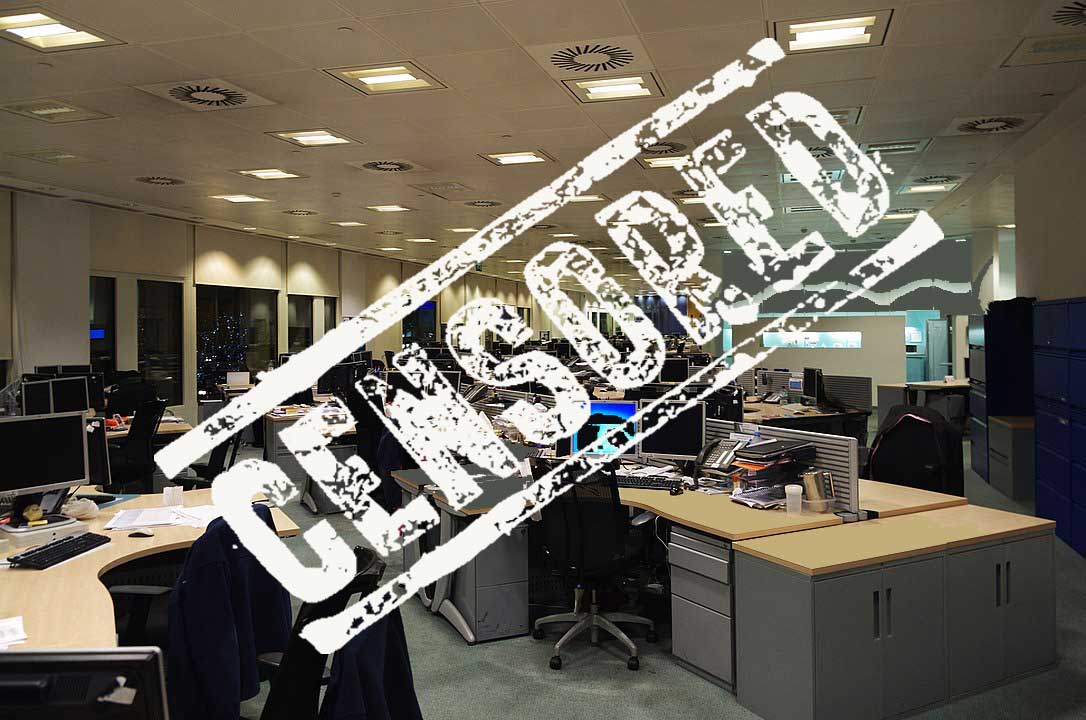
Free Speech Versus Workplace Censorship
It was unimaginable just five years ago that the activists could conscript the American workplace to advance a political agenda. For years, campuses have been the center of intense activism that often threatened free speech of dissenters, but certainly, private businesses had no reason to surrender to the demands of a minority of outspoken political activists. But over the last five years, political censorship has grown from a fringe campus phenomenon to a dominating force in American life.
Diversity, Equity, and Inclusion offices — the professional counterpart of critical race theory — have become a staple of American companies. Human resources departments are staffed with ideologues who inject identity politics into routine employment decisions. Social media mobs are ready to pounce at the first sign that a company is not sufficiently on board with the latest activist crusade. As a result, Americans are afraid to speak about important issues of the day — at work or off-duty — because if the wrong person hears their opinion, they could lose their job.
CIR Fights for Free Speech in the Workplace
CIR believes that employers and employees have the right to freely negotiate the terms of their working relationships. But now, that right is under threat from activists who intimidate employers into reneging on their employment agreements. We are bringing on more litigators, waging a bold public campaign, and filing more cases to advance an agenda of individual rights on behalf of courageous clients who are willing to fight to defend free speech against the activist take-over of the workplace — clients like Greg Krehbiel.
Krehbiel began working at BrightKey, Inc. at the end of 2019. Before starting, he got BrightKey’s OK to produce a podcast in his spare time. BrightKey’s president told him that what he chose to do in his own time was his own business.
A few months later, a coworker discovered two episodes of the podcast criticizing corporate diversity programs and hate crime laws. The coworker declared that it was “racist” and a show of “white privilege” for Krehbiel to express his views. The next day, he led a march into the parking lot and demanded that BrightKey fire him. BrightKey immediately reneged on its promise that it would stand by Krehbiel’s right to free speech. You can read his own account of what happened here.
Krehbiel is not alone. Across the country, Americans are being investigated and fired for expressing their political views. One wrong word will provoke activist coworkers to comb through their social media history to find any possible ground for a complaint. What’s more, those activists back their complaints with the threat of persistent, disruptive, and embarrassing protests.
CIR is waging a strategic campaign against this program of censorship and intimidation based around targeted lawsuits and media advocacy.
How we Fight
Defending free speech in the workplace will require new tools. The First Amendment is crucially important to protect the free speech of public sector employees, but it does not apply to private sector employers.
The First Amendment prohibits the federal and state governments from punishing individuals for their speech. So, neither state nor federal employers may fire an employee solely for what they say. But the First Amendment does not restrict private employers, so CIR is using other means of defending free speech in the private workplace.
To start, many state and local jurisdictions have extended legal protection for free speech to private sector employees. In fact, roughly half of all Americans live in jurisdictions that protect some private employee political speech. Employees in these jurisdictions may have a case if their employers fire them for their political comments or compel them to endorse political ideas.
What’s more, many now believe that a person’s right to speak on certain issues depends on their race. For example, the term “white privilege” is used to silence speakers for expressing their opinion on political issues that relate to race, and Asian critics of affirmative action have been declared racist, punished, and even fired for their speech. CIR is ready to file suit when companies fire a person for speaking as members of the wrong race.
Help CIR Advance Free Speech
CIR’s recent victory on behalf of Salvatore Davi shows what can be done. A New York public servant, Davi’s agency suspended and demoted for criticizing welfare policy in a private Facebook post. Just last year, CIR won a victory for Davi in federal court, which is currently before the court of appeals. The district judge made clear that public employers may not fire employees for their political views.
Since then, we have expanded our efforts. CIR is finding new ways to protect even private employees from the threats they face simply for expressing their opinions. With Krehbiel v. BrightKey, we are fighting to secure the right to private contract from the strong-arm tactics of aggressive activist employees.
And Krehbiel v. BrightKey is just the beginning. CIR filed a free speech claim on behalf of Norman Wang, a professor of medicine at the University of Pittsburgh, who was removed from his fellowship position and forbidden from contacting students because he wrote an article questioning the wisdom of affirmative action. Just last year, we filed a suit on behalf of a retired Air Force vet who was banned from an official Air Force Facebook page when he criticized an official for prioritizing sensitivity over battle-readiness.
It will take a bold, persistent effort to fight the activist conscription of the workplace. But make no mistake, we can win.
Support CIR’s Work to Fight for Free Speech Here.
